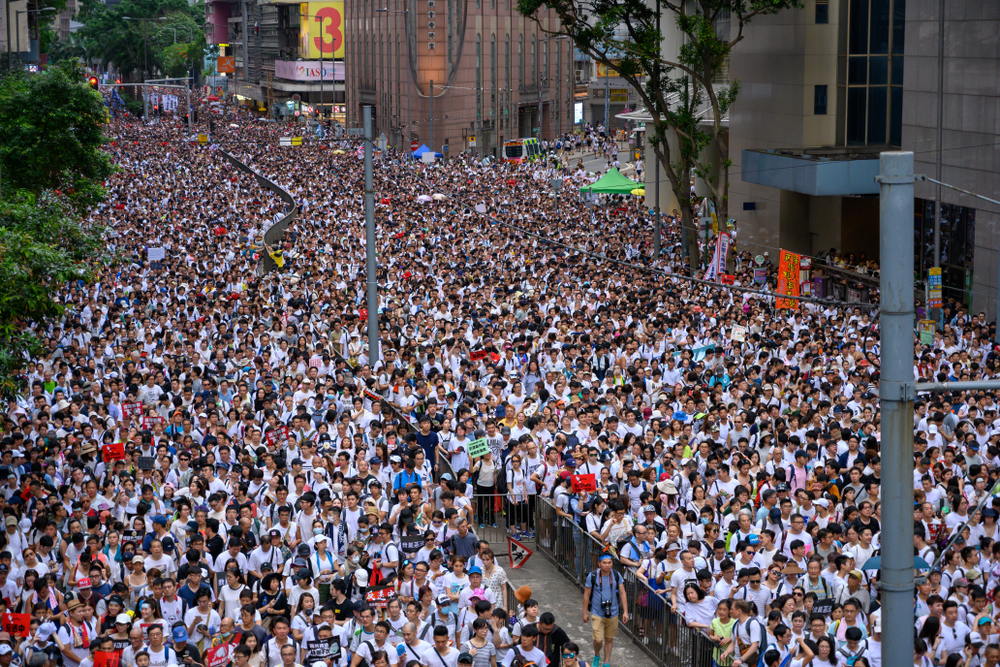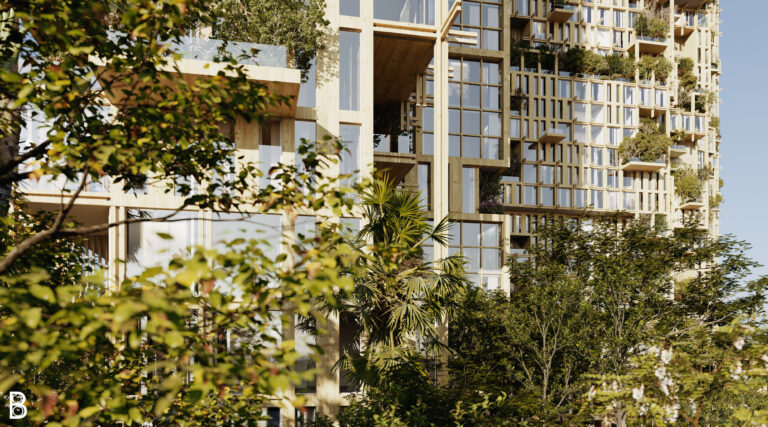A sinking feeling in Hong Kong
Sky-high interest rates and enduring pandemic restrictions are among the pain points for Hong Kong’s property market as prices continue their slide

For years, Hong Kong has debated how to make housing more affordable amid ever-rising home prices and the highest per-square-metre transaction rates in the world. But then last year, within just a few months, prices began to crash.
In October, the home price index of Hong Kong’s Rating and Valuation Department fell 2.4 percent, its lowest level in nearly five years. By the fourth quarter, average residential prices had already slumped by 10 percent. In Sha Tin and Tsuen Wan, lower-priced areas of Hong Kong away from Central and the main harbour, prices at two housing estates plummeted more than 20 percent in the year up to November, according to data compiled by Midland Realty.
Property agencies and banks agree that house prices in Hong Kong are set to continue to slide through 2023—and the bottom of the market is still not in sight. After years of price growth, Hong Kong is facing a perfect storm of headwinds impacting the real estate market. Base interest rates which started 2022 at less than one percent, ended the year at 4.75 percent following the latest in a series of hikes in December, pushing mortgage rates to their highest level since before the global financial crisis 15 years ago.
The local currency remains pegged to the US dollar and is heavily influenced therefore by the US Federal Reserve which has promised further interest rate increases this year to tackle inflation driven by the conflict in Ukraine. The US remains some way off its target inflation rate of two percent.“
The public should be prepared for the likelihood that bank deposit and lending rates may go up further, and should carefully assess and manage the relevant risks when making property purchases, taking out mortgages or making other borrowing decisions,” says Eddie Yue, chief executive of the Hong Kong Monetary Authority (HKMA), following the latest rate increase in mid-December, the seventh such hike in 2022.
The global pandemic remains another key driver weighing down the city’s real estate sector, despite a return to normality in many other parts of the region. Although Hong Kong announced the end of some restrictions in December, including the easing of travel and quarantine controls between the territory, Macau, and mainland China, lagging pandemic measures have weighed on the economy and contributed to recent record net emigration.
Many expatriates and locals have cited enduring restrictions, including separating virus-positive children from their parents, as the final straw in the decision to move away.
The public should be prepared for the likelihood that bank deposit and lending rates may go up further, and should carefully assess and manage the relevant risks when making property purchases
Others have spoken of political instability culminating in a series of new laws restricting dissent imposed from Beijing. The result has been a loss of about a quarter of a million workers from Hong Kong in the past three years, or about seven percent of the labour force, according to data from the city’s Immigration Department and Moody’s Analytics.
“This is not just because of emigration,” says Martin Wong, head of research at Knight Frank in Hong Kong. “It’s also [the] ageing population and lower labour participation rate. These are structural changes that impact both economic growth and property market demand.”
Homebuyers in Hong Kong are now facing a situation considered unthinkable just 12 months ago—negative equity. Those with 90 percent mortgages will see the worth of their house or apartment drop below the amount they borrowed should the price of that property fall by 10 percent, a concerning threshold already reached for many who borrowed and bought at the start of 2022.
With prices set to continue to slide, growing numbers of Hong Kong homeowners are expected to find themselves stuck in a negative equity trap while paying off increasingly expensive loans. Nearly 97 percent of Hong Kong homeowners with mortgages have borrowed at a variable rate, according to HKMA data, amid previous widespread expectations in the territory that interest rates would remain manageable in the longer term.

The question is: just how far will the market fall, and when will we see the bottom? At the end of November, Citibank projected prices would crash another 10 percent and bottom out in the second quarter of this year, but that was before the latest rates hike in mid-December. Since then, estimates have trended downwards further still in some cases. In the luxury segment, prices were expected to slide a further five to 10 percent in 2023 after a drop of at least 10 percent in 2022, according to Savills.
Similar forecasts have been made across the entire residential sales segment. Wong of Knight Frank projected prices could slide up to 10 percent this year, compounding the double-digit losses recorded in 2022.
Rosanna Tang, head of research at Cushman & Wakefield in Hong Kong, says the market could expect a softer landing through the remainder of this year with prices dipping no more than five percent.
“Property prices are forecast to further correct in the first half of 2023, yet we may see prices stabilise in the second half as interest rates could potentially peak in mid-year,” she says.
Analysts have cited a few reasons for optimism in Hong Kong’s residential market ahead of the Year of the Rabbit.
Fuelled by reduced pandemic restrictions and a stock market tipped to rebound, transaction volumes were expected to pick up following a dismal year, according to Tang: “The primary market transaction volume slowdown in 2022 may prompt developers to accelerate their new launches in 2023, with prices closer to the secondary market to attract buyers.”
The original version of this article appeared in Issue No. 176 of PropertyGuru Property Report Magazine. Write to our editors at [email protected].
Recommended
From childhood curiosity to architectural innovation: Mohammed Adib’s vision for a sustainable, flexible future
Mohammed Adib channels childhood curiosity and an aversion to design homogeny into his work for Dewan Architects + Engineers
ARES White Paper Volume 3: The era of adaptive reinvention
Pioneering sustainable and innovative practices in urban development
ARES White Paper Volume 2: Unravelling the power of data revolution in real estate
Insights on proptech, smart cities, and sustainable development
ARES Digital White Paper Volume 1: The fundamentals of responsible building
Green and climate heroes join forces to discuss how Asia Pacific can weather the current environmental crises and the looming effects of climate change






